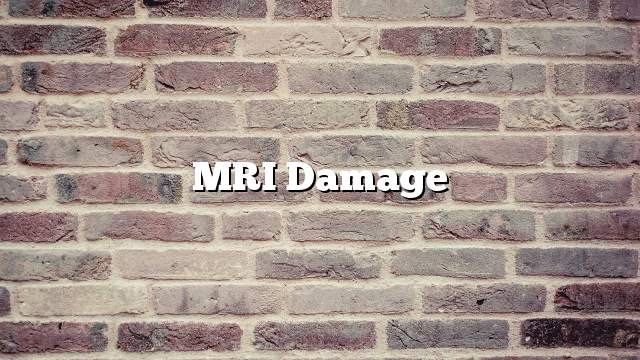Magnetic resonance imaging
Magnetic resonance imaging is commonly used for medical purposes, which is produced by a CT scanner, which depicts many parts of the body in the form of sections. MRI depends on the magnetic properties of the body. It is known that the human body contains millions of hydrogen ions, Which turns into a large magnet when the impact of the magnetic resonance imaging device, so that many signals on the body, turning into a picture to be shown on a computer, and uses magnetic resonance imaging to shoot many parts of the body, especially the soft parts, such as the brain, Ligaments and articular cartilage, and spinal cord, and the uterus, ovaries, breast, blood vessels, and the estimated duration of diagnosis using magnetic resonance imaging of ten minutes to sixty minutes.
There is more than one type of magnetic resonance imaging (MRI), a closed magnetic resonance imaging device (MRI) and an open magnetic resonance imaging device (MRI). The magnetic resonance imaging device (MRI) is characterized by giving clearer and better quality images and allows for the use of many applications, such as diffusion, spectroscopy, Strong magnetic.
Contraindications for the use of magnetic resonance imaging
- The body contains a metal regulator for pacemaker.
- The presence of extensions of arterial extensions in the brain.
- The patient’s earlier submission to cochlear implantation.
- A part of the body contains any metal parts, such as the eye, the ear, the feet, the hands, and the teeth, such as sheets and metal supports.
- There is a state of phobia towards the MRI.
Benefits of MRI
- No ionized radiation is used.
- Provides a clear biography and accurate diagnosis of many diseases affecting the body, especially heart disease, brain, spinal cord and liver.
- It gives a wide range of diseases and their development in the body, especially cancer, muscle malformations, joint and bone diseases.
- Used safely for pregnant women and children, and does not cause any harm to them.
- Do not cause any kind of pain while undergoing it.
MRI damage
- If the exact medical instructions for the MRI are followed, their risks are completely non-existent and are used very safely.
- Magnetic resonance imaging (MRI) may cause some confusion and fever, for people who carry metal objects, such as plates, bolts, dental braces, and pacemakers.
- Long exposure to the MRI causes the heat to circulate throughout the body.
- Some people become allergic when exposed to magnetic resonance imaging.
